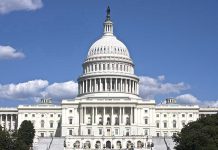
President Donald Trump just refiled a staggering $15 billion defamation lawsuit against The New York Times, marking one of the largest legal challenges ever mounted against a major American newspaper.
Story Snapshot
- Trump seeks $15 billion in damages from The New York Times for alleged defamation
- The lawsuit centers on the newspaper’s investigative reporting about Trump’s finances and tax records
- Legal experts consider this an uphill battle due to strong First Amendment protections for the press
- The case could set important precedents for future defamation claims against media organizations
A Battle Years in the Making
The legal warfare between Trump and The New York Times traces back to the newspaper’s Pulitzer Prize-winning investigation into Trump’s financial dealings. The Times published detailed reports questioning Trump’s tax strategies and wealth claims, using records Trump argues were obtained unlawfully. Trump’s legal team now alleges the newspaper engaged in a deliberate “malicious campaign” to destroy his reputation through false reporting.
This refiled lawsuit represents Trump’s renewed effort after previous legal attempts stalled in court. The sheer magnitude of damages sought—$15 billion—dwarfs most defamation cases and signals Trump’s determination to challenge what he considers biased media coverage. The Times stands by its investigative work, citing journalistic integrity and constitutional press protections.
The Legal Mountain Trump Must Climb
Trump faces formidable legal obstacles under established defamation law. As a public figure, he must prove “actual malice”—that The New York Times knew its reporting was false or acted with reckless disregard for the truth. This standard, set by the Supreme Court in landmark press freedom cases, has historically protected media organizations from retaliatory lawsuits by powerful individuals.
Trump Refiles $15 Billion Lawsuit Against The New York Times – The New York Times https://t.co/sZCjocew4O
— ForensicPsyMD (@ForensicPsyMD) October 17, 2025
Legal scholars point to precedent cases like Sarah Palin’s unsuccessful defamation suit against The New York Times, which was dismissed despite similar claims of deliberate falsehood. The courts have consistently upheld that robust debate about public figures requires strong constitutional protections for journalists, even when their reporting proves uncomfortable for those in power.
Stakes Beyond Money and Reputation
The implications extend far beyond Trump’s reputation or The New York Times’ financial exposure. Media law experts warn that even unsuccessful lawsuits can create a chilling effect on investigative journalism. News organizations may hesitate to pursue aggressive reporting about powerful figures if they face the prospect of defending against billion-dollar lawsuits, regardless of their ultimate merit.
The timing adds political intrigue to legal complexity. Trump’s decision to refile coincides with ongoing debates about media credibility and press accountability. His supporters view the lawsuit as overdue accountability for what they consider biased coverage, while critics see it as an attempt to weaponize the legal system against constitutionally protected journalism. The case will likely become a lightning rod for broader cultural battles over truth, power, and press freedom in America.
Sources:
UPI – Trump renews $15B defamation lawsuit against New York Times


















